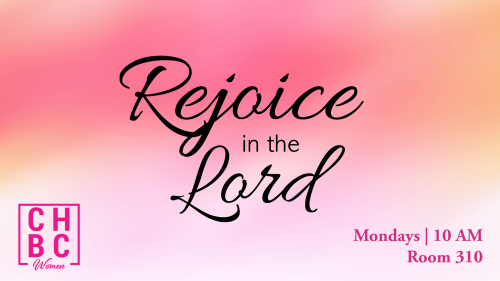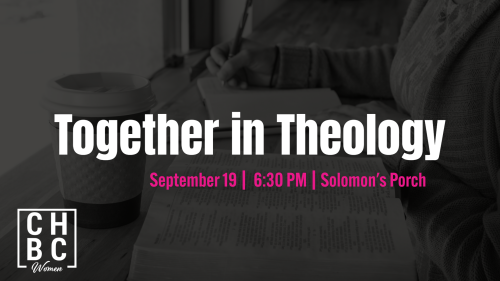
Welcome to CHBC Women's Ministry!
Join us as we gather women to edify and encourage one another by fostering relationships toward Christ. Below you will find our women's events, Bible studies, and blog.
Weekly Bible Study

Together in Theology Night

Contact Stephanie Miller for more information.
